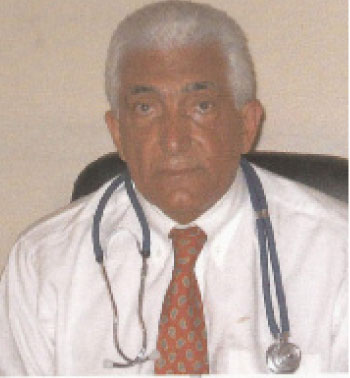
Fact
every 10 minutes, a woman dies in Africa from the cancer of the woman’s womb.
Under
the Leadership of Her Excellency The First Lady and Honorable Health Minister
Mr. Omar Sey has been set up a committee with number of Senior Specialist Gyneacologists, Health Directors from
Ministry of Health, Senior Nurses and Health professionals to facilitated
Cervical Cancer Screening, Diagnose and treatments throughout the country to
fight against the deathly Disease of cervical cancer and save many lives of in
particular young women in the Gambia.
What
is Cervical Cancer
Cervical
cancer is a cancer arising from the cervix (neck of woman’s womb). It is due to the abnormal growth of cells
that have the ability to invade or spread to other parts of the body. Early on, typically no symptoms are seen. Later
symptoms may include abnormal vaginal bleeding, pelvic pain, or pain during
sexual intercourse. While bleeding after sex may not be serious, it may also
indicate the presence of cervical cancer.
Human
papillomavirus (HPV) infection it is involved in the development of more than
90% of cases; most people who have had HPV infections, however, do not always
develop cervical cancer. Other risk factors include, a weak immune system, long
term using birth control pills, starting
sex at a young age, and having many sexual partners. Cervical cancer typically
develops from precancerous (early sings of cancer) changes over 10 to 20 years.
.HPV
vaccines protect against may prevent up to 90% of cervical cancers. As a risk
of cancer still exists, guidelines recommend continuing regular Pap smears.
Other methods of prevention include: the
use of condoms.
Cervical
cancer screening using the Pap smear or acetic acid can identify early changes
which when treated can prevent the development of cancer.
Treatment
of cervical cancer may consist of some combination of surgery, chemotherapy,
and radiotherapy. Five year survival
rates in the United States are about 68%.
Outcomes, however, depend very much on how early the cancer is detected.
Worldwide,
cervical cancer is both the fourth-most common cause of cancer and the
fourth-most common cause of death from cancer in women. In 2012, an estimated
528,000 cases of cervical cancer occurred, with 266,000 deaths in the
developing countries. .
It
is actually a very true fact that every 10 minutes, a woman dies in Africa from
cervical cancer (cancer of the neck of womb), identified significant number of
cases here in The Gambia, incidence about 14% too, despite the fact that almost
every case and I wish to emphasise almost every single case could be
preventable through a programme of screening by been screened at least every
two years.
Fortunately screening and treatment facilities
are so far available here in The Gambia in Teaching Hospitals at EFSTH which
sponsored by the “FRANCES DE GAULLE FONDATION” a Gambian Charitable
Organisation, SOS Clinic and some NGO and Private clinics.
The risk factors as in other cancer types,
also cervical cancer, and the onset of disease can be prompted by specific risk
factors such as infected with HPV and these may be Genetically, environmentally
or the commonest, the high risks of vaginal washing so called vaginal douching
with water, locally made soaps, very often local and different herbal liquids,
Dettol and many other harmful products which unfortunately sold in the various
pharmacies.
Also some products recommended by friends and
beauty salons, even use of several different perfumes to please the husbands,
confirmed this harmful habit in the clinics, possibly over up to 90%.
Using any of these motioned harmful products
on God given a very natural and healthy tissues in the vagina of every woman
destroys the healthy and protective tissues and makes these area extremely
vulnerable for developing millions of harmful bacteria, fungal, viral, HPV
(human papilloma Virus) and in particular for extremely easy transmission of
sexually transmitted diseases and certainly and undoubtedly for HIV virus.
The outcome can end up not only with
repeatedly serious symptoms of
Pelvic
infections, long standing infertility (childless) and finally preventable death
of very young women.in the Gambia.
Cervical cancer symptoms
When
present, common symptoms of cervical cancer may include:
§ Vaginal bleeding: This includes bleeding
between periods, after sexual intercourse or post-menopausal bleeding.
§ Unusual vaginal discharge: A watery, pink or
foul-smelling discharge is common.
§ Pelvic pain: Pain during intercourse or at
other times may be a sign of abnormal changes to the cervix, or less serious
conditions.
All
of these cervical cancer symptoms should be discussed with your doctor.
Signs
of advanced stages of cervical cancer
Cervical
cancer may spread (metastasize) within the pelvis, to the lymph nodes or
elsewhere in the body. Signs of advanced cervical cancer include:
§ Weight loss
§ Fatigue
§ Back pain
§ Leg pain or swelling
§
Leakage of urine or feces from the
vagina
§ Bone fractures
Cervical
Cancer - Diagnostic Procedures
Cervical cancer is one of the most common
types of cancer among women worldwide. The good news is that 92% of the cases
in early stage can be detected and treated if a woman undergoes regular pelvic
examination and Pap Smear tests. Many methods currently exist to detect
cervical cancer and to treat.
What is Smear test
The
most common diagnosis for detecting cervical cancer in its early stages is a
harmless and painless performed just in few minutes procedure called a
Papanicolaou test or Pap smear. This test can be performed in any clinic with a
trained doctor or nurse.
Women who are 16 (early marriage) or older or
who are sexually active are recommended to undergo Pap smear tests every 2 to 5
years.
The procedure is performed while a woman is
lying on her back on a gynaecological table. The trained doctor or a trained
nurse will insert an instrument called a speculum inside her vagina collecting
some cells from the neck of the womb using a swab a small brush.
The cells are prepared then sent to the EFSTH
laboratory where they are studied under a microscope to determine if any
precancerous (early signs) or cancerous cells exist. If the tests show any
abnormalities, the patient will be asked to return to the Gynaecologist so an
additional test can be performed called Colposcopy If the test results are
negative, women can schedule a 2-5 years appointment to repeat the test.
Colposcopy
Another
method used to detect cervical cancer is called colposcopy which is fortunately
available at EFSTH and some other Clinics. This procedure involves the use of a
special binocular microscope that is called a colposcope and is very similar to
a Pap smear and can recognise any abnormal cells on the neck of the womb.
The doctor can then view the cells using the
high-powered microscope to detect any abnormal cancerous cells.
Some
women are more at risk than others. Following factors increase the chances of
Cervical Cancer in women:
Human Papilloma Virus: HPV infection is a
widely spread sexually transmitted agent. HPV infection has been identified as
the most common risk factor by about 98% for cervical cancer.
Multiple Sex partners:
Polygamy
and women who have more than one sex partner are at higher risk by increasing
the chance of a Human
Early Sexual activity:
Women
who have had early sexual activity before 18 years of age are more at risk as
the vaginal and cervical cells are very fragile at this young age.
Sexually transmitted Diseases (STI)
Women
who have had some other Sexually Transmitted Disease (AIDS, GONORRHOEA) are
more prone to Cervical Cancer. Family history of cervical cancer: Some families
show a higher incidence of cervical cancer. Some scientists believe they might
carry a genetic condition making them more sensible for the negative effects of
HPV infections.
Age
seems to play a definite role as this cancer is more common in very young women
age 18-35 in the Gambia and quite rare in the older women.
Contraceptive Pills:
Women
who are regularly on the pills for many years may get Cervical Cancer faster as
they do not use condoms which are more suited
to
prevent STI’s.
Income/socio-economic
status:
Since the earning levels are directly related
to the living standards, lower income women are almost 5 times more at risk
than higher income groups.
Race:
African Asian women are at higher risk of having cervical cancer and are more
likely to have an advanced stage at the time of detection than Caucasian Women.
Unhealthy diets:
Improper
diet is also a reason that can put women at risk. Malnutrition is also
recognised as a cause.
•
High fasting blood sugar levels: Incidences of cervical cancer are more in the
women who have 140mg/DL levels of Glucose Sugar.
Multiple pregnancies:
High
number of pregnancies and multiple child birth may also increase the risk of
cervical cancer in the women.
So
summarising the risk factors, besides these which cannot be influenced such as
age, race and family history, some of them can be positively modified, like
sexual habits, smoking or diet, to lower the risk for cervical cancer.
How cancer Cells spreads
Cancer
cells often travel to other parts of the body where they can grow and form new
tumours that crowd out normal tissue. This happens when the cancer cells get
into the body’s bloodstream or lymph vessels. The process of cancer spreading
is called metastasis.
No
matter where a cancer may spread, it’s always named based on the place where it
started. For instance, bowel cancer that has spread to the liver is called
metastatic colon cancer, not liver cancer. In this case, cancer cells taken
from the liver would be the same as those in the bowels.
Vaccination
Vaccination
against HPV is advised for females age 9-14 and up to 26 of women age without
sexual activities before for prevention of HPV infection, cervical cancer, as
well as genital warts. It’s only effective when given to people before they
become infected with the virus. This is why it’s recommended that you get it
before you’re sexually active.
Gardasil
is one such vaccine, and it guards against the two most common high-risk types
of HPV, strain 16 and 18. These two strains are responsible for 70 percent of
cervical cancers. It also guards against strain 6 and 1, which cause 90 percent
of genital warts.
Because
men can carry HPV, they should also talk to their doctors about being
vaccinated. According to the CDC preteen boys and girls should be vaccinated at
age 11 or 12. They get the vaccine in a series of three shots over an
eight-month period.
The
good news is that now the vaccine is available in the Gambia at Ministry of
Health through the support and initiated by The First Lady and Honourable
Health Minister.
When
to seek medical advice
You
should contact a specialist Gynaecologist if you experience:
bleeding
after sex (postcoital bleeding)
bleeding
outside of your normal periods
new
bleeding after the menopause
Vaginal
bleeding is very common and can have a wide range of causes, so it doesn’t
necessarily mean you have cervical cancer. However, unusual vaginal bleeding is
a symptom that needs to be investigated by specialist Gynaecologist.
Finally, what are your recommendations to
reduce the risk of cancer
*
Bear in your mind that prevention is always better than cure and remember it is
never too late to start decreasing all the above motioned risk factors, in
particular stop smoking and/or drinking.
*
Obesity (overweight) is associated with marked increasing diseases such as
diabetes, high blood pressure and some hormonal-dependent cancer, even such as
breast and womb cancers. Studies have shown that population with diets high in
fruits and vegetables and low in animal fat, meet, or calories have a
remarkable reduced risk of some common types of cancers. Limit consumption of
fat and refined carbohydrates, including pastries, sweetness, soft drinks, and
limit sugars in tea, coffee and in particular too much of drinking Ataya drink
counting tremendous amount of sugar.
*
Finally, while you are reading this article there are millions and millions of
people suffering from cancer symptoms and complications worldwide. Be wise and
do not join them as the risk of developing most types of cancer can be reduced
by changing in person’s lifestyle and a healthy diet for every member of your
family and as a nation as a whole.
For
further information contact specialist Gynaecologists at EFSTH, SOS Clinic,
Ministry of Health (Health promotion Departments) and number of Doctors in NGO
and private Clinics, Frances De Gaulle Njie Foundation web site, E-mail to
drhassanazadeh@gmail.com, or text only to DR AZADEH on 002207774469/3774469
between 3-6 pm
Author
DR AZADEH Senior Lecturer in Obstetrics & Gynaecology at the University of
the Gambia, Clinical Director at Medicare Health services.
Read Other Articles In Article (Archive)
Taiwan team develops new technology to help treat cancer
Jul 30, 2013, 11:16 AM



